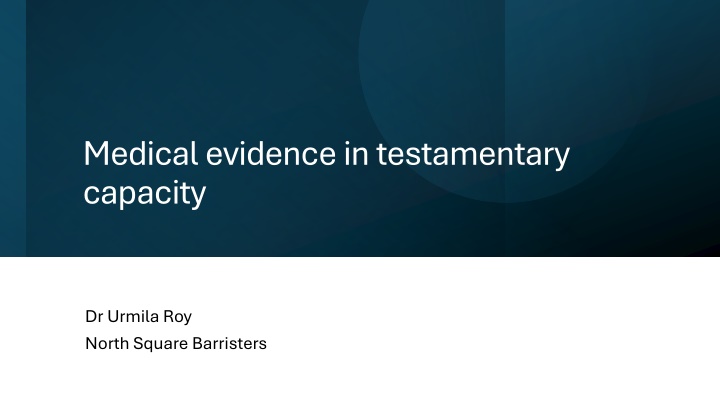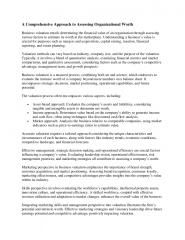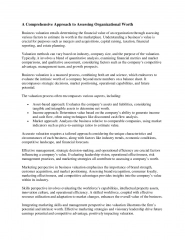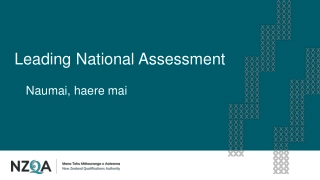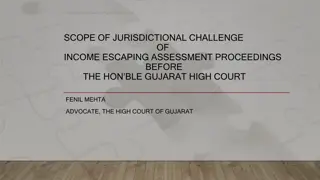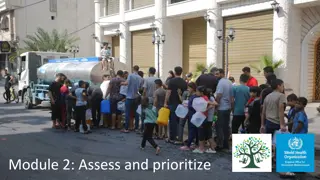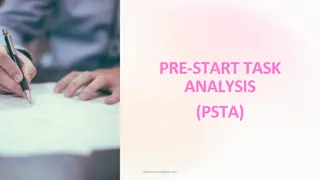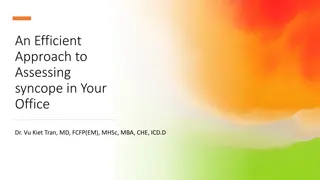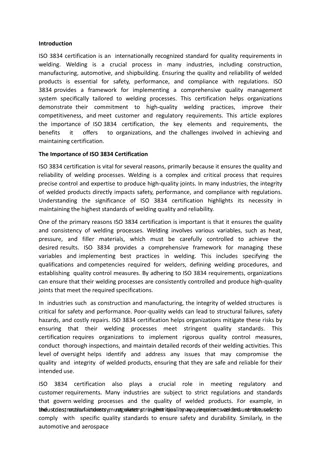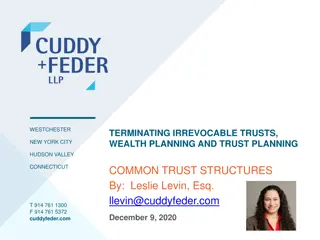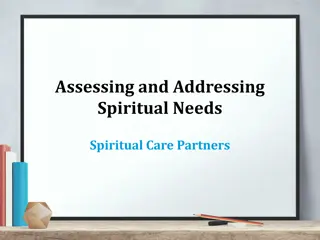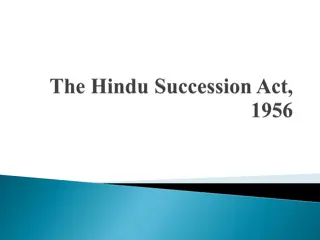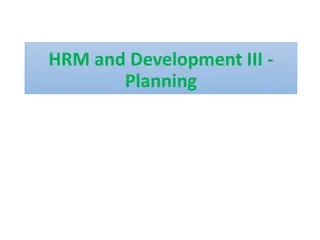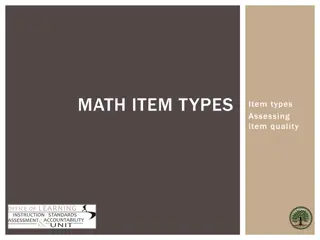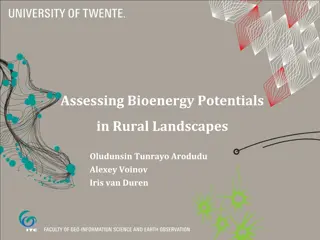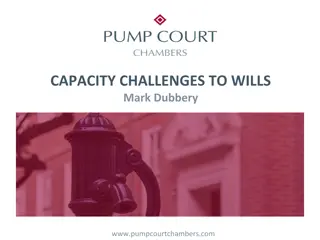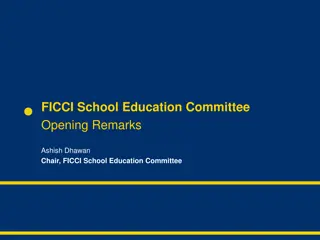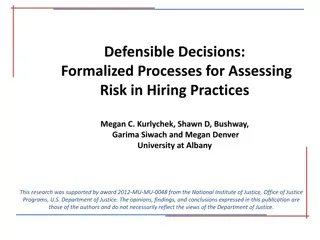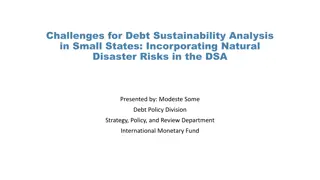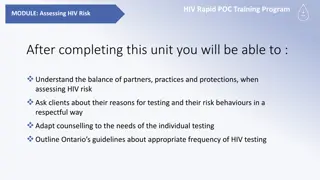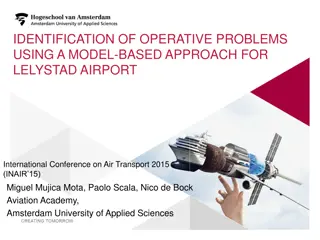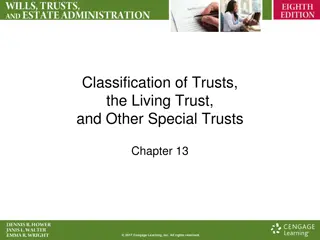Challenges in Assessing Testamentary Capacit
The complexities of assessing testamentary capacity are explored, highlighting the fluctuant nature and decision-specific aspect of capacity evaluation. The importance of seeking capacity assessments, especially for the elderly, is discussed, along with considerations for obtaining medical evidence and the role of GPs in such assessments. The implications of increasing life expectancy on testamentary capacity assessments are also addressed.
Download Presentation

Please find below an Image/Link to download the presentation.
The content on the website is provided AS IS for your information and personal use only. It may not be sold, licensed, or shared on other websites without obtaining consent from the author.If you encounter any issues during the download, it is possible that the publisher has removed the file from their server.
You are allowed to download the files provided on this website for personal or commercial use, subject to the condition that they are used lawfully. All files are the property of their respective owners.
The content on the website is provided AS IS for your information and personal use only. It may not be sold, licensed, or shared on other websites without obtaining consent from the author.
E N D
Presentation Transcript
Medical evidence in testamentary capacity Dr Urmila Roy North Square Barristers
The difficulty of assessing testamentary capacity Cognition Capacity Relationship between the two Capacity is decision specific Fluctuant nature of testamentary capacity
When to seek testamentary capacity assessment? Onus is on the solicitor drafting the will 'Golden Rule advises a testamentary capacity assessment in anybody who is old or infirm old or infirm who wishes to make a will The Golden Rule is not mandatory ( obligatory vs desirable ) Decision to obtain specific testamentary capacity assessment will depend on a number of things: Degree of concern about capacity of the testator by the drafter of the will Extent and nature of the estate Client s instructions Protection against a professional negligence claim
When to seek testamentary capacity assessment? Always contemporaneous and proactive Retrospective assessments, whilst possible are riddled with issues As the population in general has increasing life expectancy, the risk of age related cognitive issues increases Amount of social and healthcare investment is not meeting the increase in the healthcare burden of the elderly Greater issues of testamentary capacity => ?increased claims for contentious probate in the courtroom?
The source of the medial evidence: to GP or not to GP? Where the issues are uncomplicated, a GP assessment is adequate Where complicated, assessment should be undertaken by a specialist old age Psychiatrist or general adult Psychiatrist
Obtaining evidence from the GP: the benefits and limitations Generalised knowledge of the patient (?claims of lack of objectivity) Wider knowledge of social issues/family dynamics/lifestyle habits Cheap at 100 and available in around 6 weeks Testamentary capacity assessment is niche not all GPs can/will do them Time and capacity constraints Reliant upon self reporting Patients increasingly being seen by Noctors => poorer quality consultations and documentation for complex patients =>subtle changes in demeanor which may indicate a cognitive decline are missed Lack of clinician continuity
The letter of instruction to the GP needs to be very specific Quality of the assessment and its ability to withstand challenge will depend on the quality of the letter of instruction
Letter of instruction: should include at least the following Note as to whether the author would be content to give evidence on their report Note as to whether the author would be content to give evidence on their report The legal test (to be very specific that not not mental capacity) Why Why the assessment is required Rough idea of the nature of the estate and the potential claims against it Draft of the will (proposed/previous where applicable) Questions re: the professional qualifications and the author s experience of assessing capacity Length of time the GP has known the patient, and where not personally known, to what extent they have investigated the notes/the time they ve taken to review the patient/what assessments they have undertaken and why Details of illnesses/medications/recent life events that may affect the patient s brain or ability to make decisions and whether they actually are affecting their testamentary capacity at that time
Letter of instruction: should include at least the following Lifestyle factors (drugs/alcohol) Lifestyle factors (drugs/alcohol) In what circumstances the assessment was done In what circumstances the assessment was done (home/nursing home/GP surgery/video assessment and why (home/nursing home/GP surgery/video assessment and why this was the chosen manner in which the assessment was this was the chosen manner in which the assessment was conducted) conducted) Who was present during any testamentary capacity Who was present during any testamentary capacity assessment and why assessment and why Any cognitive scores that have been used and what they were (common ones are GPCOG/MMSE/AMTS GPCOG/MMSE/AMTS)
Letter of instruction: should include at least the following Any recent life events ( Any recent life events (eg Any other relevant information e.g. the family dynamics that may make the will subject to challenge Factors for and against capacity Whether the GP can conclude they have capacity to make a will and with reasons Where it is not possible to reach a conclusion as to testamentary capacity or if it is finely balanced, why this might be and whether a specialist psychiatric report is required eg bereavement/diagnosis) bereavement/diagnosis)
Specialist reports Old age Psychiatrist General adult Psychiatrist Online expert witness panel Expensive ? Proportionate ? Acceptable to your lay client
Specialist assessments of testamentary capacity: things to look for Is the assessment multidisciplinary ? Have they referred to all the evidence including (but not limited to): Medical inpatient/outpatient records GP records Inpatient psychiatric and community records Hospice information Social care/police information/other allied health professionals
Specialist assessments of testamentary capacity: things to look for Evidence of corroborative history The setting of the assessment and why this was the most appropriate or the most practicable way of undertaking it Consideration of mood disorders Clear evidence of the consideration of the issues as to what may impact capacity (medications/recent illness etc) but clear reasoning as to why at that time there was no evidence that they did
Specialist assessments of testamentary capacity: things to look for Where there is a psychiatric disorder, consideration for ICD -11 and DSM-5 criteria Psychometric testing (MOCA/MMSE/ACE-III) assessment Examination as to mental state: Appearance and behaviour Speech Mood Thought Insight Intellectual functioning
Specialist assessments of testamentary capacity: things to look for personality dx Consideration of a personality disorder personality disorder Particular group of patient which are very difficult to assess capacity Often fluctuant Decisions can be irrational but not necessarily non-capacitous
Retrospective assessments Same criteria for quality of report applies Riddled with issues Retrospective assessments v expensive (?proportionality) Single most obvious undermining feature is the assessment is done post mortem
Death bed wills and doctor assessment/witnessing V problematic and v easily undermined Doctors are reluctant (and rightly so) to do these assessments and are more likely than not, not competent to do so Inpatient circumstances (meds/new environment/illness) are hotbeds for delirium Families often present => claims for undue influence Concerns also about a doctor being witness to a will implies they have done an assessment of capacity Junior doctors movements may be difficult to find them later for evidence
